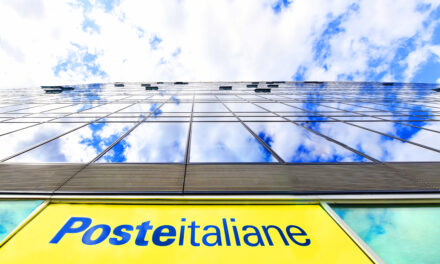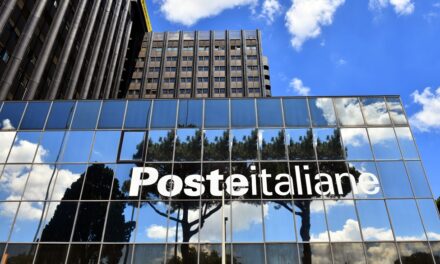
Pitfalls abound for the new Poste Italiane
Until recently the Italian postal service, Poste Italiane, epitomized all that was awry with the country's public services: bloated payrolls, poor service by rude clerks and a culture that shunned innovation while prizing the status quo regardless of how inept it made the company at delivering mail.
Following a six-year modernization push ‹ including building a retail banking operation from scratch ‹ Poste Italiane has reversed five decades of losses. It is on track to report its fifth straight profitable year, recently paid its first dividend and may soon be partially privatized in an initial public offering.
Some of its moves, including into banking, have been replicated elsewhere in Europe, notably in Germany and France, illustrating how the most clunky of government-owned companies can be turned into competitive businesses.
But potential pitfalls abound, some of them unique to Italy, like a nascent consolidation in the Italian banking sector. Others are shared across the Continent, like too many small branches and the EU-mandated opening of postal services to full competition in 2009.
Massimo Sarmi, the chief executive who took over in 2002, is pushing ahead with the expansion plans, however, trying to turn weaknesses into strengths. The move into financial services is at the root of Poste's turnaround, but so too are massive investments and upgrades in everything from computer systems to methods of mail distribution.
''When I took over running the company and looked at the financial situation, it was clear that to increase the bottom line we had to start by increasing revenue, and that that was never going to happen unless we had modern infrastructure,'' Sarmi said in a recent interview. ''Concentrating on banking was just a way of exploiting in a modern way what was the traditional function of European postal services and that was to offer telecommunications and basic financial services.''
Poste has turned the cost of running 14,000 post offices, including those tucked away in tiny Sicilian villages and Alpine hamlets ‹ into an irreplaceable asset, said Sarmi. Those post offices now double as banks selling insurance, bonds, mutual funds, mortgages and other financial instruments.
But some industry experts question whether that is the way to be moving as banking trends evolve. Dirk Becker, a Frankfurt-based analyst for Kepler Equities, noted that in Germany, Postbank, a separately listed unit of Deutsche Post, is ''concentrating on its top 850 branches and trying to figure out what to do with the rest because their presence is too big.''
More broadly, he said, ''Branch banking in Germany is on the way out as people move to using the Internet and telephone banking. That is a trend that will probably be replicated throughout Europe.''
As part of a cost-cutting plan, Sarmi this week proposed that some of the smaller post offices might stay open only a few days a week and keep longer hours to make up for the days they are closed. The government criticized the plan and the Italian media has suggested that some politicians in governing coalition would like to see Sarmi, who is said to be close to one of the opposition parties, removed from his post.
Becker also questions whether financial instruments beyond the basic bank account will sell successfully in a postal bank. But Sarmi contests that and defends Poste's extensive network of branches and payroll of 150,000 ‹ down 33,000 employees from eight years ago.
''It's hard to say what would be the right number of employees to have,'' said Sarmi, who is 58. ''If we maintained the same services and products, of course we have too many people on staff, but since we are always adding new services we will need the employees that we have. In the meantime, we have shown that we can be very profitable.''
Rome-based Poste's first-half net profit jumped 73 percent to Euro 379 million, or $481 million, as cuts in operating costs offset a 4.8 percent drop in sales brought on by a decline in insurance premiums. Revenue from banking services, which accounts for half of all non-insurance revenue, rose 7.3 percent while the traditional postal service business is stagnant.
The pending Euro 33 billion merger of Banca Intesa and Sanpaolo IMI, Italy's second- and third-largest banks, will create the country's biggest bank by customers, but even that will have only 5,500 branches compared with Poste's 14,000. BancoPosta, as the banking unit is called, has 4.8 million bank accounts ‹ a 13 percent market share in Italy ‹ compared with the 6 million clients of Banca Intesa-Sanpaolo.
Tommaso Padoa-Schioppa, Italy's finance minister, in July hinted that the government, which owns 100 percent of Poste, might soon sell part of the company in an initial public offering. Though the government has fallen silent on the topic, it is sure to stay on the agenda as Italy struggles to find funds to pay down its debt.
While he waits, Sarmi is cutting deals to keep Poste competitive and innovative ‹ 10 percent of revenue comes from products introduced in the past year. Sarmi said Poste became the first company in the world with its own icon on Microsoft Office software when a deal was signed in May. Users of Microsoft Word and Excel in Italy can download a small program that installs the icon and makes it possible to send registered letters directly from a personal computer.
Last month Poste signed a deal with UPS to have the American company deliver Poste's international mail.
Meanwhile, Poste has improved its core business. Though mail delivery can sometimes be spotty, the company says 94 percent of non-priority domestic letters are delivered within three days after they are mailed, compared with 65 percent eight years ago.











